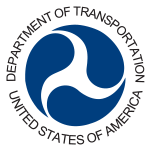Mission
The Office of Inspector General is committed to fulfilling its statutory responsibilities and supporting members of Congress, the Secretary, senior Department officials, and the public in achieving a safe, efficient, and effective transportation system.
Vision
The Office of Inspector General will build on its long-standing record as a highly respected contributor to the Department's mission. Our unique role as the Department's sole in-house source for objective examination of its programs and their integrity, along with our core values and audit and investigative expertise, will ensure we remain highly responsive to the needs of the Secretary, Congress, and the American people. We will be proactive in selecting our work and versatile in integrating our capabilities. In a complex and evolving transportation environment, we will excel in identifying opportunities for improvements in operations and programs and in relentlessly protecting programs from fraud, waste, abuse, and violations of law.
The Office of Inspector General works within the Department of Transportation to promote effectiveness and head off, or stop, waste, fraud and abuse in departmental programs. We do this through audits and investigations. OIG also consults with the Congress about programs in progress and proposed new laws and regulations.
The Inspector General Act of 1978 gives the Office of Inspector General autonomy to do its work without interference. The Inspector General is chosen by the President -- not based on political affiliation but rather on integrity and ability. IG candidates can show accomplishment in several fields, including accounting, auditing, law, financial or management analysis, public administration or investigations. Inspector General appointees are subject to Senate confirmation. Only the President has the power to remove an inspector general and the reasons for doing so must be communicated to Congress.
The Inspector General Act of 1978 prevents officials in the scrutinized agency from interfering with audits or investigations; it also requires the IG to keep the Secretary of Transportation and Congress informed of findings. However, much of OIG's most significant work is accomplished with the cooperation of the officials whose programs are being reviewed.

.png)